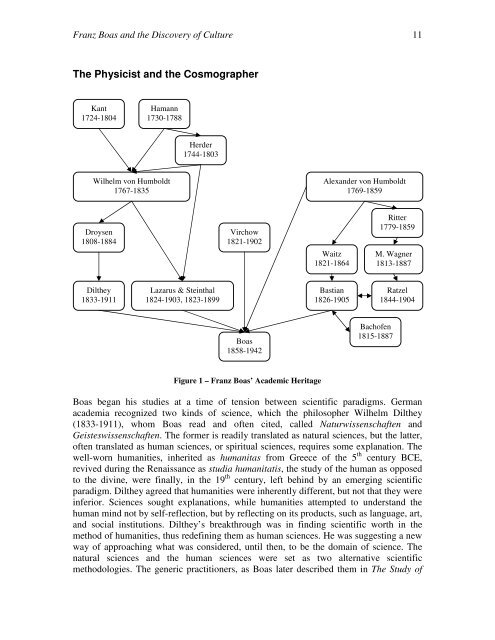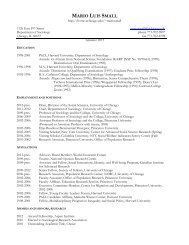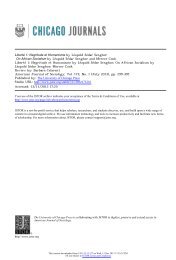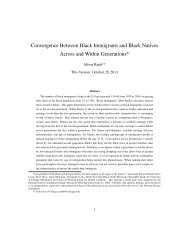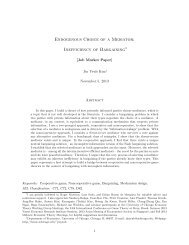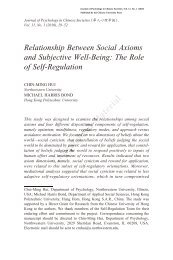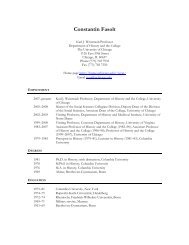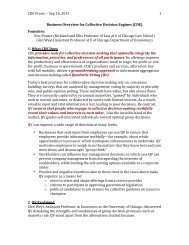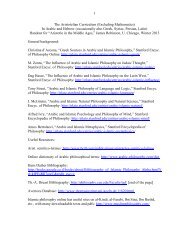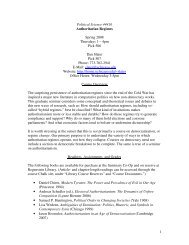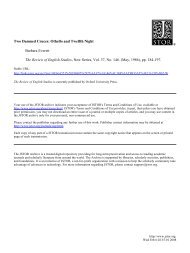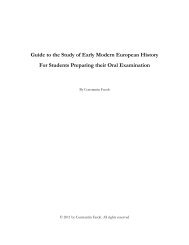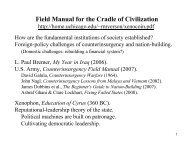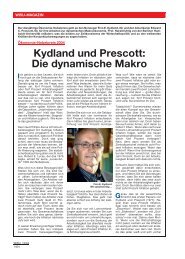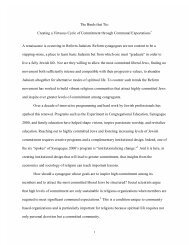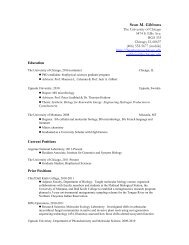Franz Boas and the Discovery of Culture - Personal Web Pages ...
Franz Boas and the Discovery of Culture - Personal Web Pages ...
Franz Boas and the Discovery of Culture - Personal Web Pages ...
You also want an ePaper? Increase the reach of your titles
YUMPU automatically turns print PDFs into web optimized ePapers that Google loves.
<strong>Franz</strong> <strong>Boas</strong> <strong>and</strong> <strong>the</strong> <strong>Discovery</strong> <strong>of</strong> <strong>Culture</strong> 11<br />
The Physicist <strong>and</strong> <strong>the</strong> Cosmographer<br />
Kant<br />
1724-1804<br />
Hamann<br />
1730-1788<br />
Wilhelm von Humboldt<br />
1767-1835<br />
Droysen<br />
1808-1884<br />
Dil<strong>the</strong>y<br />
1833-1911<br />
Herder<br />
1744-1803<br />
Lazarus & Steinthal<br />
1824-1903, 1823-1899<br />
Virchow<br />
1821-1902<br />
<strong>Boas</strong><br />
1858-1942<br />
Figure 1 – <strong>Franz</strong> <strong>Boas</strong>’ Academic Heritage<br />
Alex<strong>and</strong>er von Humboldt<br />
1769-1859<br />
Waitz<br />
1821-1864<br />
Bastian<br />
1826-1905<br />
Ritter<br />
1779-1859<br />
M. Wagner<br />
1813-1887<br />
Bach<strong>of</strong>en<br />
1815-1887<br />
Ratzel<br />
1844-1904<br />
<strong>Boas</strong> began his studies at a time <strong>of</strong> tension between scientific paradigms. German<br />
academia recognized two kinds <strong>of</strong> science, which <strong>the</strong> philosopher Wilhelm Dil<strong>the</strong>y<br />
(1833-1911), whom <strong>Boas</strong> read <strong>and</strong> <strong>of</strong>ten cited, called Naturwissenschaften <strong>and</strong><br />
Geisteswissenschaften. The former is readily translated as natural sciences, but <strong>the</strong> latter,<br />
<strong>of</strong>ten translated as human sciences, or spiritual sciences, requires some explanation. The<br />
well-worn humanities, inherited as humanitas from Greece <strong>of</strong> <strong>the</strong> 5 th century BCE,<br />
revived during <strong>the</strong> Renaissance as studia humanitatis, <strong>the</strong> study <strong>of</strong> <strong>the</strong> human as opposed<br />
to <strong>the</strong> divine, were finally, in <strong>the</strong> 19 th century, left behind by an emerging scientific<br />
paradigm. Dil<strong>the</strong>y agreed that humanities were inherently different, but not that <strong>the</strong>y were<br />
inferior. Sciences sought explanations, while humanities attempted to underst<strong>and</strong> <strong>the</strong><br />
human mind not by self-reflection, but by reflecting on its products, such as language, art,<br />
<strong>and</strong> social institutions. Dil<strong>the</strong>y’s breakthrough was in finding scientific worth in <strong>the</strong><br />
method <strong>of</strong> humanities, thus redefining <strong>the</strong>m as human sciences. He was suggesting a new<br />
way <strong>of</strong> approaching what was considered, until <strong>the</strong>n, to be <strong>the</strong> domain <strong>of</strong> science. The<br />
natural sciences <strong>and</strong> <strong>the</strong> human sciences were set as two alternative scientific<br />
methodologies. The generic practitioners, as <strong>Boas</strong> later described <strong>the</strong>m in The Study <strong>of</strong>


